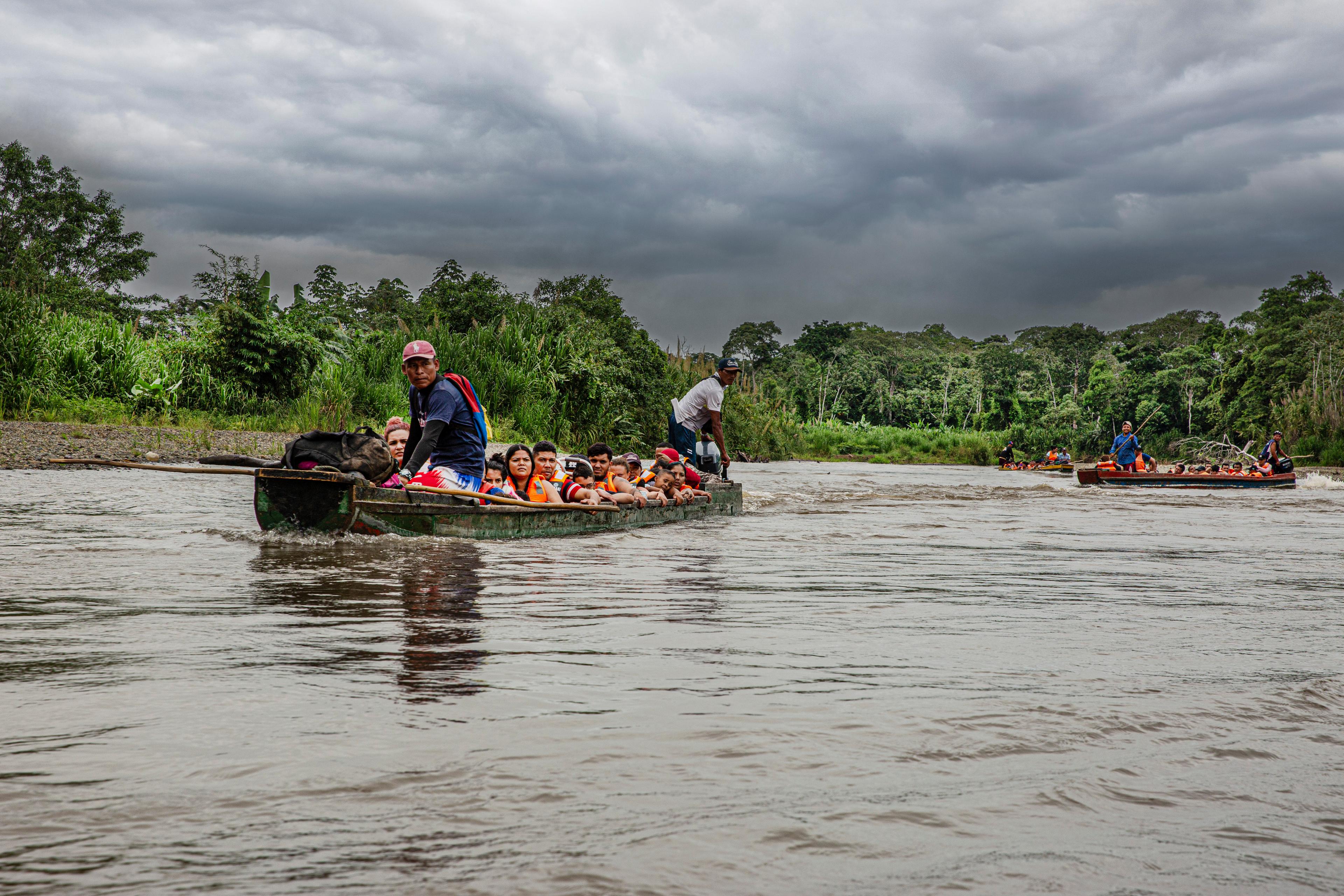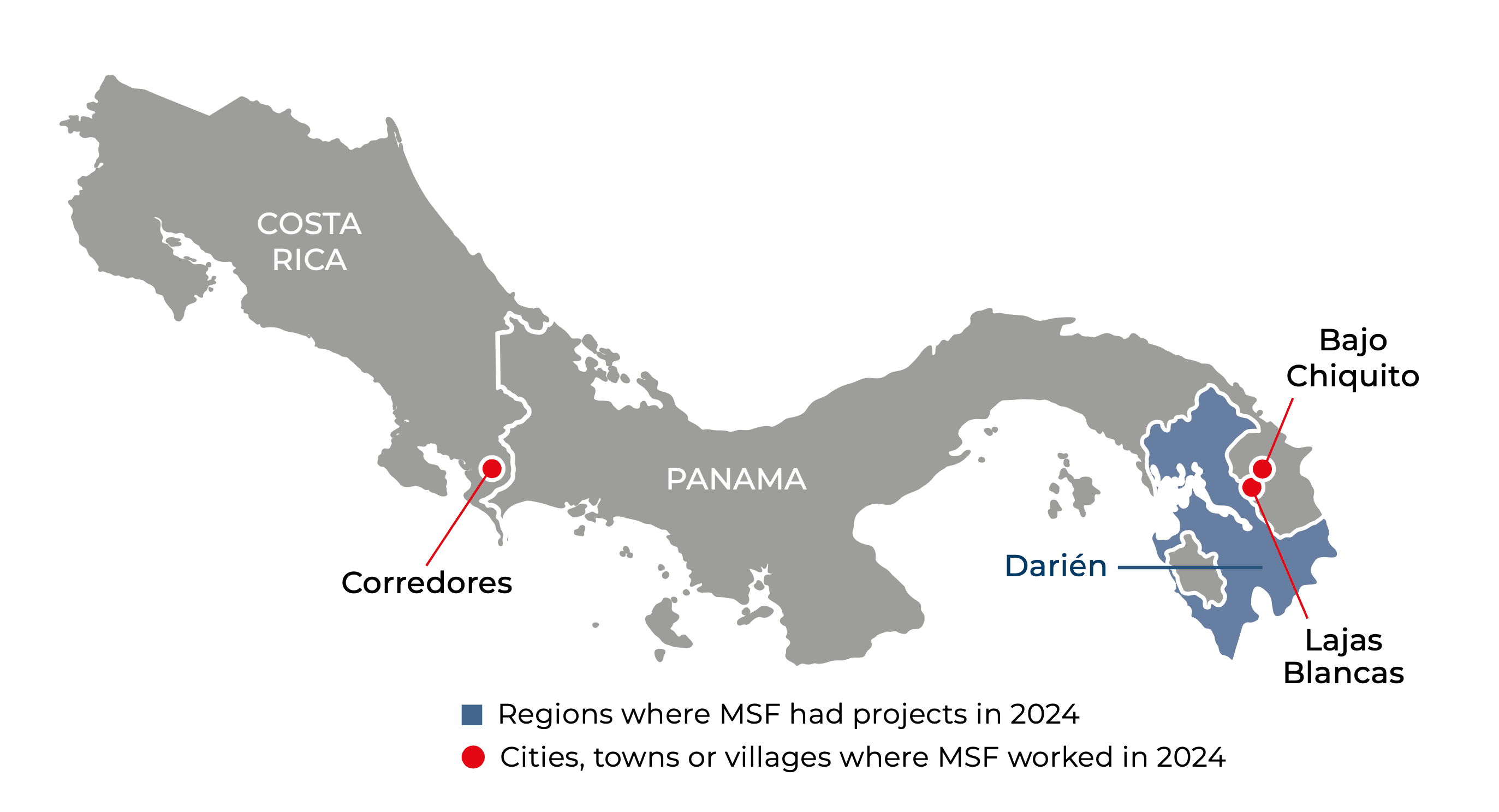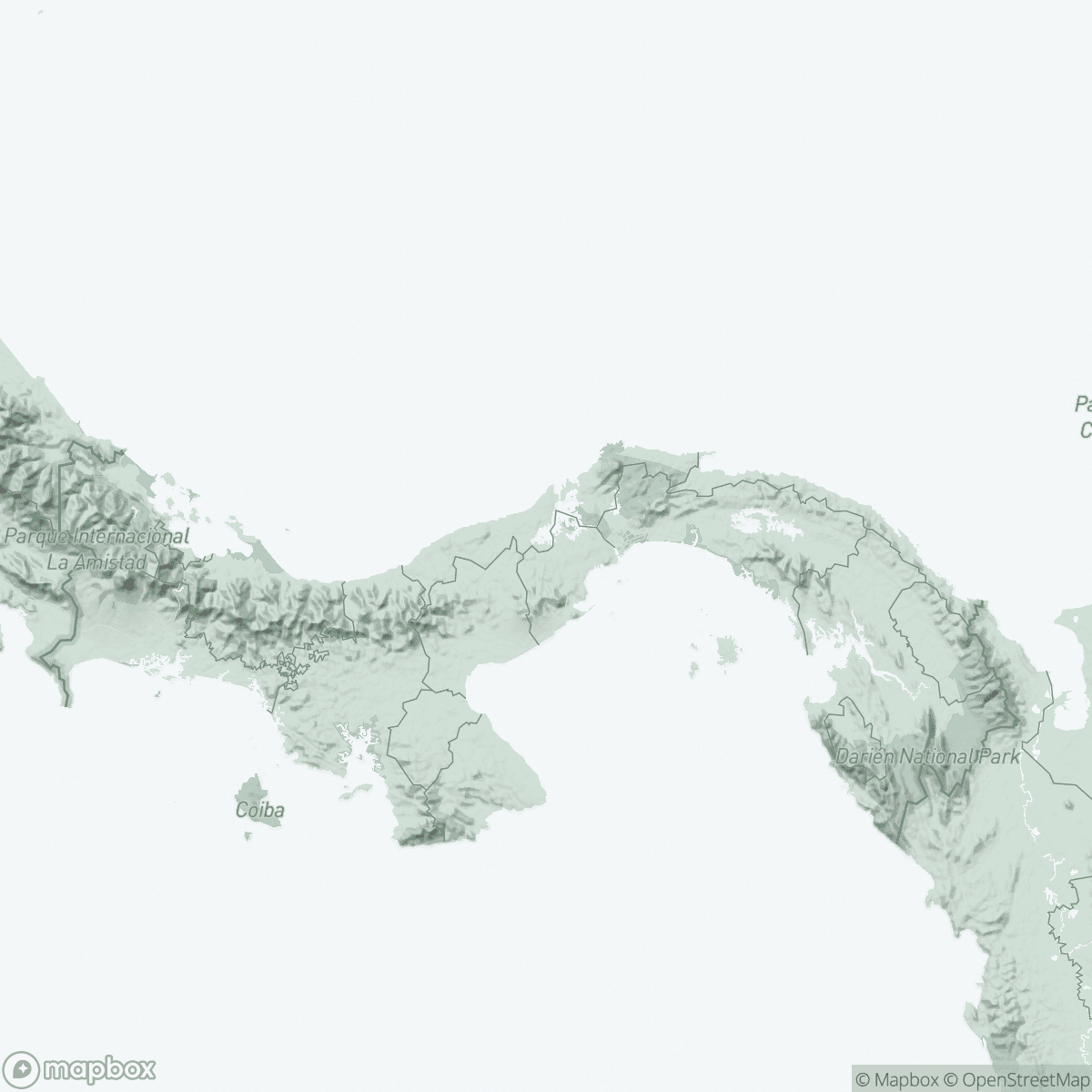
Panama & Costa Rica
Médecins Sans Frontières (MSF) teams provided medical assistance to migrants, with a focus on victims and survivors of sexual violence, in Panama and Costa Rica in 2024.
Our activities in 2024 —
outpatient consultations
individual mental health consultations
people treated for sexual violence
According to the Panamanian migratory authority, in 2024, more than 302,000 people crossed the Darién Gap, a remote area of mountainous jungle between Colombia and Panama, where they are vulnerable to attacks by criminal gangs, as they make their way north to the United States (US).
Although this figure represents a 42 per cent decrease compared to 2023, it was the secondhighest number of crossings since the beginning of the migration crisis in this region.

Two-thirds of the migrants crossing were Venezuelans, topping a list of dozens of different nationalities, including Colombians, Ecuadorians, and increasing numbers of people from other continents.
MSF teams based at the Lajas Blancas migration station, and in the indigenous community of Bajo Chiquito, offered basic medical consultations for conditions such as diarrhoea, skin rashes, and respiratory illnesses, as well as mental health support and treatment for sexual violence. However, in March, we were forced to suspend our activities in Darién by the Panamanian authorities, who claimed that we did not have a collaboration agreement in place, which we had been trying to renew since October 2023.
Given the urgency of treating victims of sexual violence within 72 hours of the assault to prevent unwanted pregnancies and HIV infection, we launched activities in Costa Rica in April with Cadena, a local partner.
In September, after seven months of negotiations, we received permission from the Panamanian authorities to resume activities in Darién on a temporary basis. As a result, we started working there again in October, and ended our response in Costa Rica.
At the end of the year, there was a steep drop in the number of crossings through the Darién Gap, which is typical during the seasonal festivities, but the electoral uncertainty in Venezuela, the results of the US election, and the increase in border patrols and deportations in Panama could also be contributing factors.

